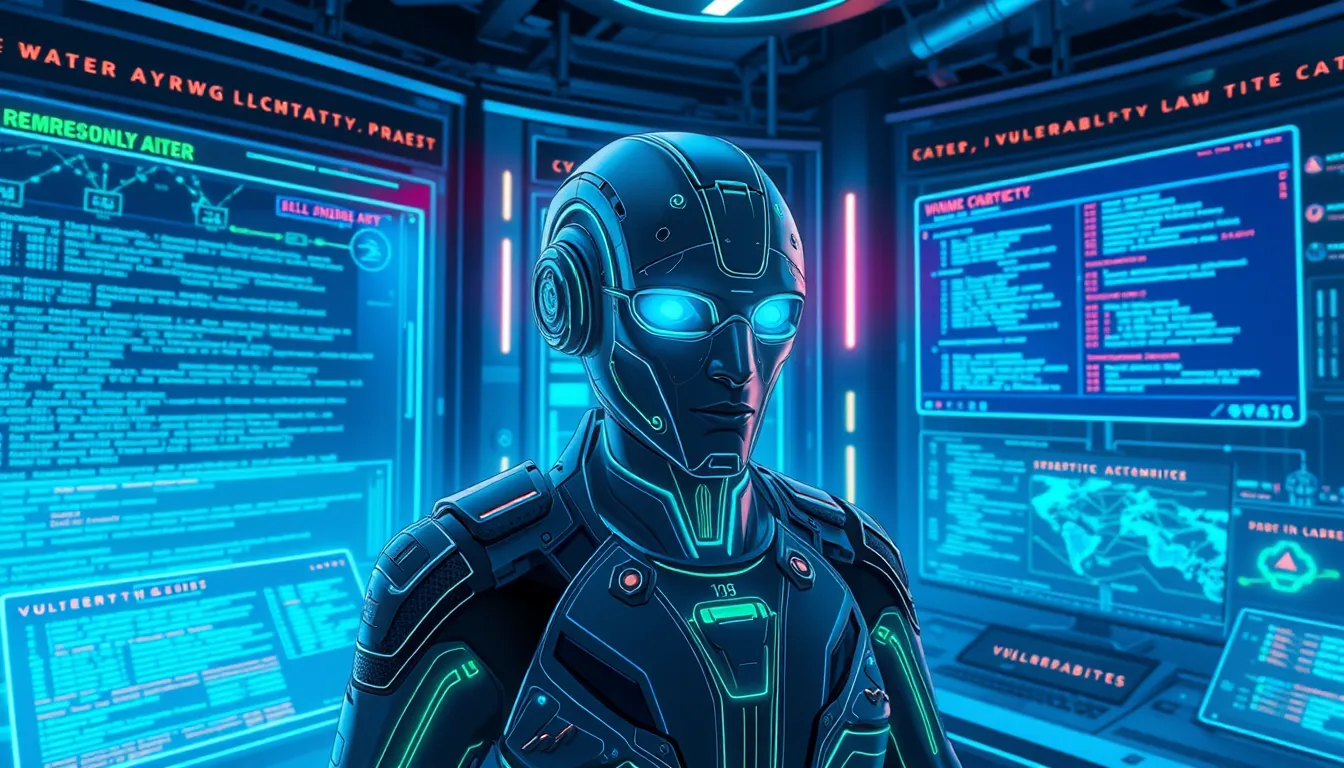Now Reading: Innovative Google AI Agent: Automated Vulnerability Fixes
-
01
Innovative Google AI Agent: Automated Vulnerability Fixes
Innovative Google AI Agent: Automated Vulnerability Fixes

Innovative Google AI Agent: Automated Vulnerability Fixes
Google, a global leader in technology and innovation, has once again set a new benchmark in the realm of cybersecurity with its breakthrough solution – the Google AI agent. This advanced tool is engineered to redefine the way organizations manage vulnerabilities by integrating automated code rewriting for vulnerability fixes. With cyberattacks growing more sophisticated, this agent is designed not only to detect potential breaches but also to remedy them through proactive, AI-powered interventions.
Transforming Vulnerability Management through Automation
In today’s fast-paced digital era, maintaining software security cannot be left to periodic manual checks. The Google AI agent emerges as a game changer by providing automated patch deployment and vulnerability management. By scanning extensive code bases, the tool leverages machine learning cybersecurity techniques and AI code scanning to pinpoint even the most subtle vulnerabilities. The efficiency and precision of this AI-driven approach are underscored by its ability to:
- Analyze large code segments quickly
- Detect hidden security flaws
- Automatically rewrite vulnerable code segments
- Enhance overall software quality
These capabilities drastically reduce the time between vulnerability detection and remediation. By transitioning from reactive to proactive approaches, organizations can minimize their exposure to cyber threats and ensure smoother, uninterrupted operations.
Automated Code Rewriting for Vulnerability Fixes
One of the standout features of this innovative solution is its focus on automated code rewriting for vulnerability fixes. Traditionally, code vulnerabilities required extensive manual reviews and patching by experts, which often resulted in a lag that malicious actors could exploit. The new AI agent is engineered to understand and interpret the context and semantics of code using advanced natural language processing techniques.
Technical Benefits and Performance Improvements
The application of automated code rewriting for vulnerability fixes brings numerous technical benefits and performance improvements:
- Enhanced Detection Accuracy: Leveraging deep neural networks, the tool improves diagnostic precision, ensuring that even the most subtle coding errors are identified.
- Swift Patch Deployment: With automated patch deployment, the time required to correct a vulnerability is drastically reduced, thereby closing security gaps faster than ever.
- Continuous Integration Readiness: Designed with modern CI/CD pipelines in mind, this AI agent integrates seamlessly, ensuring that security is maintained without hampering development velocity.
- Scalability: Whether for small and medium-sized enterprises or large corporations, the AI agent scales with your operations, providing consistent performance across diverse environments.
The strategic integration of this technology helps streamline vulnerability management while significantly reducing the demand on human resources. This enables development teams to redirect their focus towards innovation and new feature development, rather than being bogged down by routine maintenance tasks.
The Role of Machine Learning Cybersecurity in Today’s Landscape
Machine learning cybersecurity is transforming how businesses safeguard their digital assets. By incorporating machine learning algorithms into the security toolkit, organizations can analyze data patterns in real time and predict potential threats. The Google AI agent embodies this revolution by combining automated patch deployment with advanced analytics, a synergy that paves the way for a more secure software ecosystem.
Furthermore, this approach addresses the dynamic nature of cyber threats. As attackers continuously evolve, traditional security measures often fall short. In contrast, the Google AI agent constantly learns from new data, adapting its strategies to counter emerging threats efficiently.
Integrating Advanced Technologies in CI/CD Pipelines
Continuous integration and continuous deployment (CI/CD) pipelines have become a cornerstone of modern software development. However, ensuring robust security within these fast-moving environments remains a challenge. By incorporating the Google AI agent into CI/CD workflows, organizations can achieve:
- Seamless integration with existing development tools
- Rapid response to detected vulnerabilities
- Enhanced code quality and stability
- Proactive defense against evolving cyber threats
For a deeper dive into CI/CD practices, you can visit this comprehensive resource by Atlassian: CI vs CD. Integrating a tool like the Google AI agent ensures that every code deployment is not only innovative but also secure.
Future Implications and Industry Impact
The introduction of the Google AI agent is more than just a technological upgrade – it signals a foundational shift in cybersecurity strategy. As industries become increasingly digital, the need for dynamic defense mechanisms grows more critical. This AI agent sets the stage for future innovations where automation and artificial intelligence combine to create safer digital environments.
Looking forward, the impact of Google’s approach is expected to ripple across various sectors. Other organizations, inspired by this pioneering move, may soon adopt similar strategies, blending AI-driven technologies with traditional cybersecurity measures to fortify their defenses. This progressive shift not only enhances the overall security posture but also promotes a culture of continuous improvement and innovation.
Conclusion: A New Era in Cybersecurity
In conclusion, the Google AI agent represents a significant leap forward in cybersecurity. By focusing on automated code rewriting for vulnerability fixes, it encapsulates the future of AI-powered security. Through efficient vulnerability management, machine learning cybersecurity, and seamless integration in CI/CD pipelines, the tool reinforces the importance of proactive defense in the modern digital landscape.
Moreover, by reducing the manual workload and enabling rapid patch deployment, the AI agent allows development teams to concentrate on innovation rather than routine security maintenance. For more details on Google’s technological initiatives, visit the official Google page at Google.
The evolution of cybersecurity is inevitable, and with innovations like the Google AI agent, enterprises are better equipped to handle the challenges of today’s digital environment. Embracing such advanced technologies is not only an investment in security but also in the future resilience and growth of any organization. As cyber threats become increasingly complex, the integration of AI and automated solutions into security protocols is essential for maintaining robust, adaptable, and efficient defense mechanisms.
By harnessing the power of AI, companies can look forward to a future where vulnerability management is fast, accurate, and truly transformative. The journey towards a more secure digital world has begun, with the Google AI agent lighting the way.

























